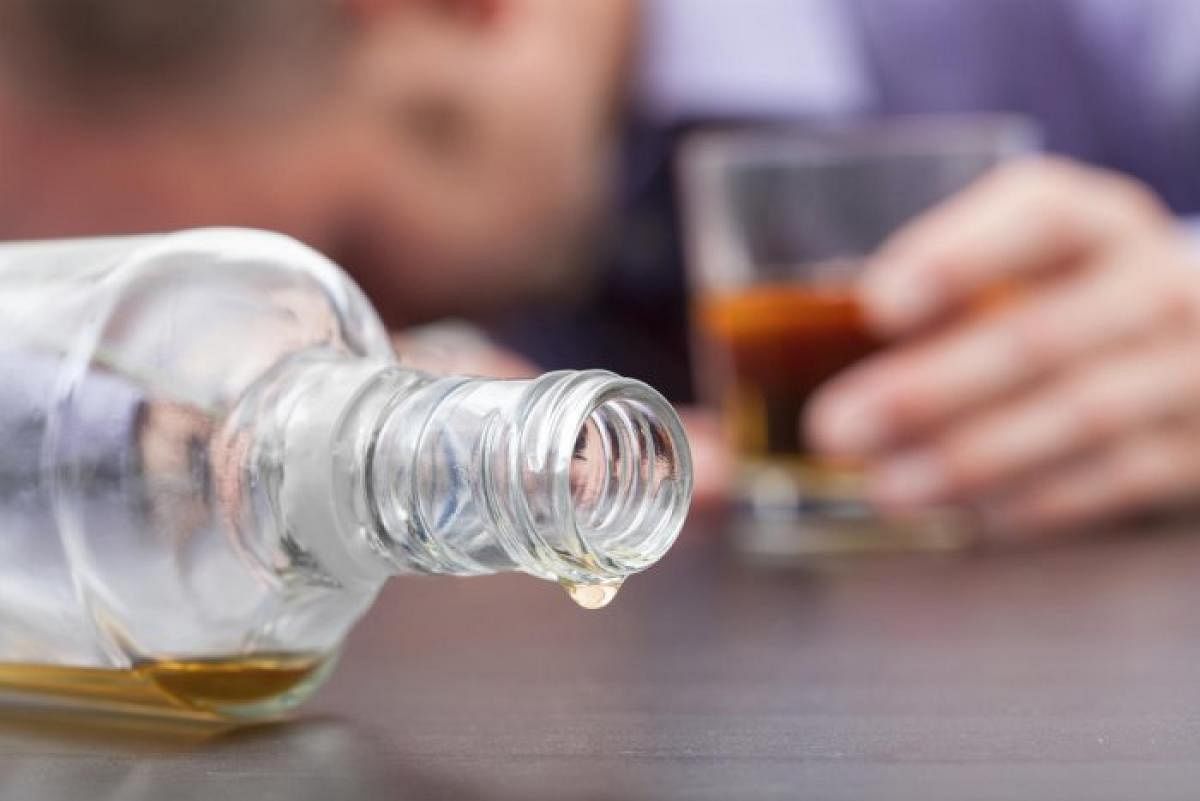
As the lockdown moves to the second week, cracks have started to appear in the patience levels and forced cheerfulness of the people stuck inside their houses. While most are grumbling about not being able to go outside, a small but significant part of the population is struggling with problems like domestic violence, drug dependency, depression and most commonly, alcohol addiction.
The non-availability of alcohol due to the nationwide lockdown has claimed six lives in Kerala — all youngsters below the age of 40, who committed suicide because of this. Hyderabad and Karnataka too have seen suicides because of this. Many are admitted in de-addiction centres.
Others, who had stocked up bottles and cans in anticipation of such a situation, now find themselves increasingly reliant on alcohol and other such substances to tide over the monotony of daily life. Many posts on social media are testimony to how people are drinking (or smoking) more than usual. While it is not too likely that many in confinement will become addicted by the end of the period, the risk does exist.
Reasons are many. For one, many believe that the lockdown is not a period to deprive oneself. For others, the usual avenues of relieving work or family-related stress, such as engaging in sports or going for a drive, are shut down. Stress about the situation is driving up anxiety levels. In its recommendations for coping with stress during the pandemic, the World Health Organisation has advised, ‘Don’t use smoking, alcohol or other drugs to deal with your emotions’. But this is easier said than done.
Watch out for warning signs
While craving is psychological, it is when your body starts reacting to such desires that it can be termed an addiction.
Dr Subrata Das, senior consultant, internal medicine and diabetology, Sakra World Hospital, points out that a person can be termed as addicted to alcohol if that is what they crave as soon as they get up. “Such a person prefers to drink alone and gets angry if he does not have access to alcohol. This person will also have a certain amount of guilt that he’s drinking but he can’t help it,” he says.
He adds that withdrawal symptoms include tremors in the body, hands and feet start shivering and don’t function properly, irritability and confusion. In extreme cases, the person starts hallucinating or goes on to have seizures or fits. The symptoms of withdrawal are different for different substances.
If one is experiencing such symptoms, Dr Subrata advocates reaching out to professionals for help, since most of the hospitals and helplines are functioning.
Rishi Kapoor bats for liquor shops to be kept open
Bollywood actor Rishi Kapoor has said the state and central governments should let the licensed liquor shops operate.
“Government should for sometime in the evening open all licensed liquor stores. Don’t get me wrong. Man will be at home only what with all this depression, uncertainty around. Cops, doctors, civilians etc... need some release. Black mein to sell ho hi raha hai (It is already being sold in black) (sic),” he had tweeted.
“State governments desperately need the money from the excise. Frustration should not add up with depression. As it is everyone is drinking so legalise it no hypocrisy. My thoughts,” he further said.
What can you do...
Cravings and addiction become intense or uncontrollable desires when you know the substance is not available or when you are not supposed to consume it, points out Sumalatha Vasudeva, clinical psychologist, BGS Gleneagles Global Hospital. She suggests some tips to overcome such situations:
Avoid stress: Stress may induce cravings, so try to avoid such situations. One way to minimise stress is by exercising regularly. A change in thought and activity affects the body and mind in exactly the opposite way that stress does.
Be occupied: Make time for your hobbies and interests as well as relaxation. Spending time with your loved ones will also help you divert your mind from cravings.
Stay positive: An upbeat attitude and determination will help you quit the habit. The non-availability of alcohol and other addictive substances might become a blessing for those wanting to give up on the same.
Seek support: The decision to sober down is hard to do on your own. Seek support from friends and family or even online groups. It will be easier to get through the phase with advice from those who have gone through this earlier.